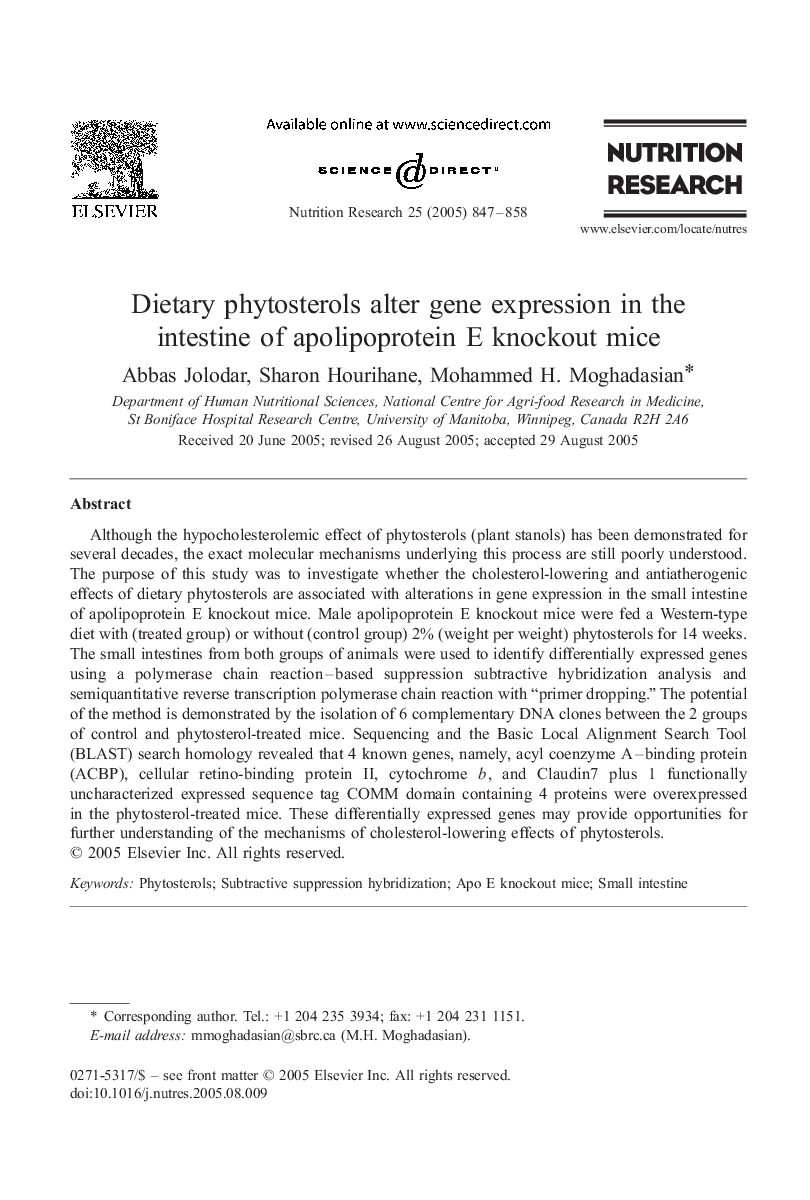| Article ID | Journal | Published Year | Pages | File Type |
|---|---|---|---|---|
| 9118977 | Nutrition Research | 2005 | 12 Pages |
Abstract
Although the hypocholesterolemic effect of phytosterols (plant stanols) has been demonstrated for several decades, the exact molecular mechanisms underlying this process are still poorly understood. The purpose of this study was to investigate whether the cholesterol-lowering and antiatherogenic effects of dietary phytosterols are associated with alterations in gene expression in the small intestine of apolipoprotein E knockout mice. Male apolipoprotein E knockout mice were fed a Western-type diet with (treated group) or without (control group) 2% (weight per weight) phytosterols for 14 weeks. The small intestines from both groups of animals were used to identify differentially expressed genes using a polymerase chain reaction-based suppression subtractive hybridization analysis and semiquantitative reverse transcription polymerase chain reaction with “primer dropping.” The potential of the method is demonstrated by the isolation of 6 complementary DNA clones between the 2 groups of control and phytosterol-treated mice. Sequencing and the Basic Local Alignment Search Tool (BLAST) search homology revealed that 4 known genes, namely, acyl coenzyme A-binding protein (ACBP), cellular retino-binding protein II, cytochrome b, and Claudin7 plus 1 functionally uncharacterized expressed sequence tag COMM domain containing 4 proteins were overexpressed in the phytosterol-treated mice. These differentially expressed genes may provide opportunities for further understanding of the mechanisms of cholesterol-lowering effects of phytosterols.
Related Topics
Life Sciences
Biochemistry, Genetics and Molecular Biology
Endocrinology
Authors
Abbas Jolodar, Sharon Hourihane, Mohammed H. Moghadasian,
